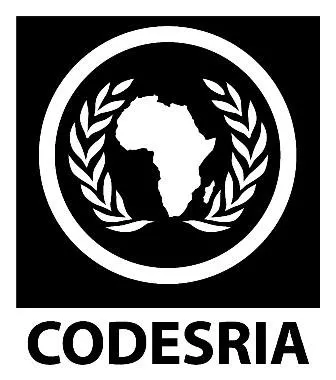Deadline: 20th March 2013
Theme: African peer review mechanism working for the peoples of Africa: a decade of self-assessment
21-22 May 2013
Addis Ababa, Ethiopia
Call for Abstracts and Papers
Background
The African Peer Review Mechanism (APRM) was established on 9 March 2003 by the Heads of State and Government Implementation Committee (HSGIC) of the New Partnership for Africa’s Development (NEPAD) as an instrument for self-monitoring for better governance.
The APRM has, at its fulcrum, the deepening of democratic practices, with a view to strengthening achievements, disseminating best practices and rectifying underlying deficiencies in governance and socio-economic development processes among AU Member States. The aim is to encourage and build transformative leadership and constructive national dialogue, through an inclusive and participatory self-assessment process, and foster policies and practices that would lead to the attainment of the NEPAD objectives of political stability, high economic growth, sustainable development and accelerated sub-regional and continental economic integration.
Since its inception, the APRM has made significant progress in terms of the number of countries that have acceded to the Mechanism, the rolling-out of the review exercise, the deepening of the review process, as well as the level of participation and engagement of stakeholders. Indeed, APRM membership has grown steadily since 2003. In 2013, APRM has a membership of 33 countries that have voluntarily acceded. The countries are: Algeria, Angola, Benin, Burkina Faso, Cameroon, Chad, Djibouti, Egypt, Ethiopia, Gabon, Ghana, Kenya, Lesotho, Liberia, Malawi, Mali, Mauritania, Mauritius, Mozambique, Niger, Nigeria, Republic of Congo, Rwanda, Sao Tome & Principe, Senegal, Sierra Leone, South Africa, Sudan, Tanzania, Togo, Tunisia, Uganda, and Zambia.
Seventeen (17) of these countries have completed their self-assessment exercise and have been peer-reviewed by the Forum of Heads of State and Government. They are: Ghana, Rwanda, Kenya, South Africa, Algeria, Benin, Uganda, Nigeria, Burkina Faso, Mali, Mozambique, Lesotho, Mauritius, Ethiopia, Sierra Leone, Zambia and Tanzania.
The benefits derived from the APRM cannot be overemphasized. The Mechanism has opened up the political space for citizens’ participation in policy debates, fostered national dialogue, and increased advocacy for good governance and improved service delivery. In some countries, its findings have warned of impending crises, and indeed when crises erupted, APRM findings provided a useful framework for reform. The APRM has created a platform for African peer learning and sharing of experiences and best practices.
The APRM National Programme of Action (NPoA), which emanates from the review exercise, is of crucial importance. The value addition of the mechanism lies in the implementation of the NPOA recommendations. Peer-reviewed countries, have implemented, albeit at various degrees, the recommendations of the NPoA.
As the APRM marks its 10th Anniversary in 2013, it is imperative to reflect on its achievements and the challenges it is facing with a view to improving its tools and processes and enhancing its effectiveness over the next decade.
The APRM Colloquium is part of a series of events organized to commemorate the 10th anniversary. It will serve as a platform for a high level discourse on governance among prominent African scholars, thought leaders, government officials, governance academics and practitioners and other stakeholders. The APRM Colloquium will reflect on the progress of the APRM process; its strides, challenges and prospects and the importance of better governance in the social and economic transformation of the continent.
Specific objectives
The Colloquium seeks to achieve the following objectives:
 Assess the state of governance in Africa and the role of the APRM in it;
Assess the state of governance in Africa and the role of the APRM in it;
 Reflect critically on the APRM in terms of its background, structures, mechanisms, instruments, processes, outcomes and impact;
Reflect critically on the APRM in terms of its background, structures, mechanisms, instruments, processes, outcomes and impact;
 Analyze the lessons learned, problems, challenges, opportunities and the prospects of the APRM in improving governance performance in Africa;
Analyze the lessons learned, problems, challenges, opportunities and the prospects of the APRM in improving governance performance in Africa;
 Discuss key cross-cutting issues that have arisen from the APRM country review reports and proffer policy options on how those issues can be addressed by member-states;
Discuss key cross-cutting issues that have arisen from the APRM country review reports and proffer policy options on how those issues can be addressed by member-states;
 Map out strategies of entrenching APRM values and principles in Member States and making the APRM project people driven and sustainable on the continent;
Map out strategies of entrenching APRM values and principles in Member States and making the APRM project people driven and sustainable on the continent;
 Discuss the prospects of improved governance in Africa in line with ideas and ideals of pan-Africanism and the role of the APRM in it.
Discuss the prospects of improved governance in Africa in line with ideas and ideals of pan-Africanism and the role of the APRM in it.
Sub-themes:
 Governance and the APRM project in Africa: Theoretical conceptions, and empirical issues of background, institutions, processes and outcomes;
Governance and the APRM project in Africa: Theoretical conceptions, and empirical issues of background, institutions, processes and outcomes;
 Pan-Africanism, Governance and the APRM Project;
Pan-Africanism, Governance and the APRM Project;
 Problems, challenges, and opportunities of the APRM in governance improvement in Africa;
Problems, challenges, and opportunities of the APRM in governance improvement in Africa;
 Role of international, regional and sub-regional institutions in the APRM;
Role of international, regional and sub-regional institutions in the APRM;
 Building a people driven and people owned APRM agenda in Africa;
Building a people driven and people owned APRM agenda in Africa;
Submission of Abstracts and Papers:
A short one or two pages abstract maximum should be submitted to the APRM Secretariat on or before 20th March 2013. Authors of successful abstracts will be notified by the end of March 2013 and full papers to be submitted by 30th April 2013.
Successful papers will be sponsored for presentation during the APRM colloquium scheduled for 21-22 May 2013, in Addis Ababa, Ethiopia. In this regard, the APRM Secretariat will cover an economic air ticket and DSA.
Abstracts should be sent to:
Dr. Rachel Mukamunana,
Colloquium Coordinator,
APRM Secretariat,
Midrand,
South Africa.
Email: RachelM2@dbsa.org






